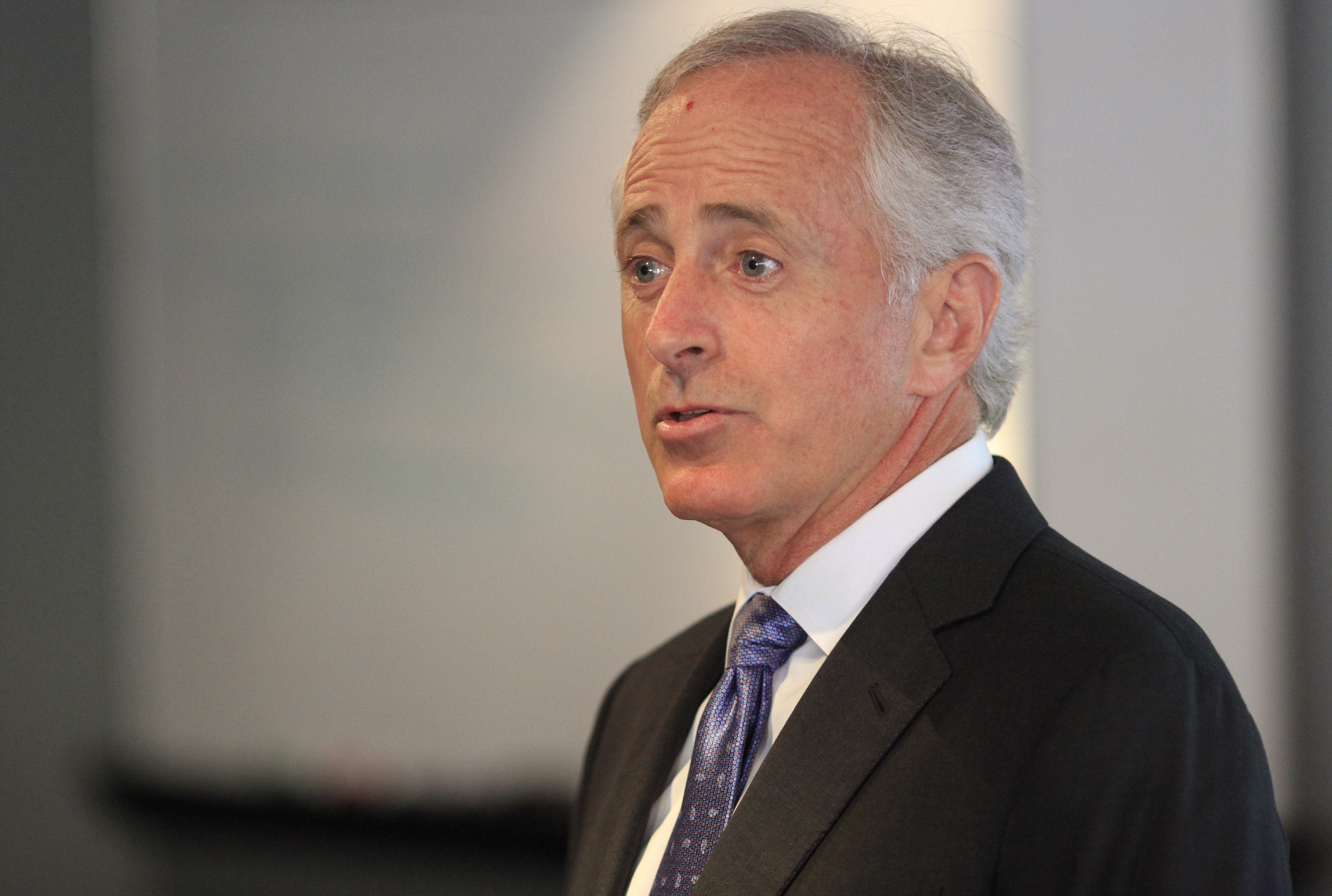Sen. Bob Corker's low-key re-election campaign hasn't drawn wide public attention yet, and there's good reason for that. He's built a good reputation by doing a fine job the past five-and-a-half years, and his obscure opponents in the August Republican primary don't have the money or name-recognition to derail Corker's bid for a second term. Simply put, he's earned the status of a shoo-in.
His enviable position owes both to his serious study of the most critical problems that confront Washington and his good fortune upon his arrival in the Senate in 2006 to be placed on two of the Senate's most powerful committees -- banking and foreign relations.
Both put him where the action is. Assignment to the banking committee plunged him into the thick of the Senate's ongoing response to the 2007 banking crisis and financial implosion that sent the economy, here and abroad, into the worst tailspin since the Great Depression. And rules for banking reform to prevent another speculative banking disaster are still not finish ed. The foreign relations post gave him an center seat on the swirl of the costs and backlash of the American wars in Iraq and Afghanistan. Small wonder he's become an adept student of budget deficits, the costs of war, and the burdens and limits of American power.
That cauldron accounts for his admitted frustration with Washington's gridlock over budget deficits and agreement on a path toward a bipartisan solution to fiscal sanity and maintenance of America's global leadership position. In an editorial board meeting at this newspaper Monday, Corker said that despite his past frustration over gridlock, and regardless of the outcome of the November presidential election, he believes Washington will finally come to grips with deficit-reduction and spending issues next year -- if only because fiscal circumstances finally require it. He says he wants to be there then, because he has carefully been preparing a comprehensive bill to address the deficit from both ends -- spending reductions and revenue needs.
The former, he correctly says, will have to deal with long-term reform of entitlement spending, including Medicare, Medicaid and such budget areas as highway trust funds. He describes the latter as tax cuts for both business and marginal income tax rates at the high end of wealth, but combined with closure of special tax provisions and credits that now disproportionately favor big business and the ultra wealthy. As examples, he cites corporate loopholes and limits on credits for taxpayers' mortgage costs and charitable deductions. A comprehensive package of tax reforms and spending limits, he reasonably argues, would generate new revenue, reduce deficit spending, provide certainty to capital markets and businesses, and stimulate capital investments and new jobs.
Corker's approach is hardly novel, of course. President Obama has repeatedly called for such legislation, and clear thinkers on both sides of the aisle have long agreed, if only privately, that both spending cuts and cuts in tax-expenditures -- the credits, loopholes and special-interest exemptions that now riddle the tax code, and drain more than $1 trillion annually from potential tax revenue -- will have to go hand-in-hand. Republicans won't call those reforms tax increases, mainly because the current right-wing -- and the party's election-and-tea party oriented talking points -- won't tolerate the idea of political compromise.
But the realists know better. The current $14.3 trillion deficit, accumulated mainly by George W. Bush and his GOP predecessors, prove the point. Despite his partisan votes on other issues, Corker's hard-earned experience and deep insistence on the urgency of balanced deficit reduction put him in the front ranks of senators willing to lead that crucial fight. He needs to be Washington for that battle.

